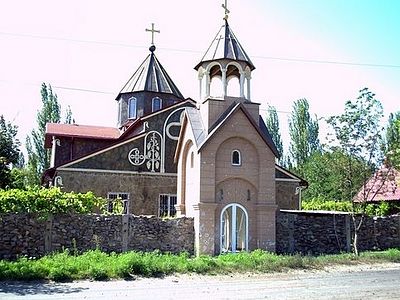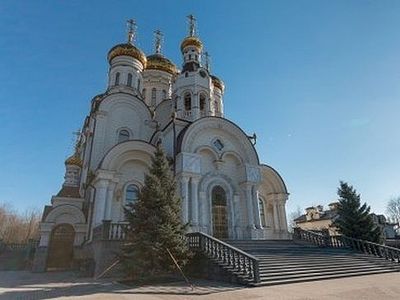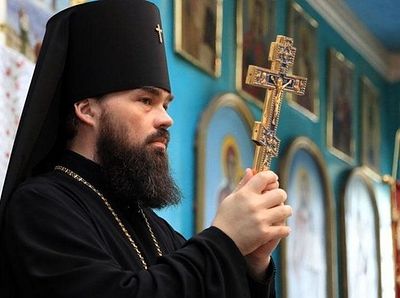Horlivka (an industrial city in the Ukraine’s Donetsk region), July 27, 2015
On the first anniversary of “Bloody Sunday”—the day when artillery shelling of the residential neighborhoods of the Horlivka center began—a memorial service for the repose of all the civilian residents killed in the armed conflict was held at the request of the local inhabitants. Though it was a workday, hundreds of people came to the memorial of the victims of the undeclared war, installed in the Pobedy (“Victory”) Avenue. Some of them could not hold back their tears.
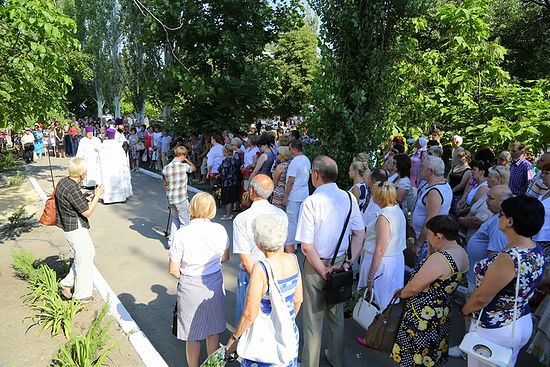
The memorial service was celebrated by the clergy of the Theophany Cathedral. Archpriest Viktor Shinkarev delivered a brief speech to the city residents after the prayer. He noted that the most important thing for the bombardment victims is our prayer for them and wished a speedy establishment of peace in the Ukrainian land, reports the Horlivka and Sloviansk Diocese’s website.
After the service the Horlivka residents honored the memory of the victims with a minute of silence. Students of the city educational institutions recited poems written in memory of those events. People carried flowers and toys to the memorial stone—15 children between 10 months and 17 years of age have been killed in Horlivka since the beginning of the armed conflict in Donbass.

On Sunday, July 27, 2014, at 12:35 the Horlivka center was shelled for the first time. Main city streets were massively shelled by grad (“Hail”) missiles: Pobedy Avenue, Lenin Avenue, Gagarin Street, and Slavy Park. Very many people, including children, were walking there on the weekend. Over 20 civilians were killed on that day, among them was one 10-month-old baby. The estimated number of people injured is about 100. A panic ensued in Horlivka, and hundreds of people hastily tried their best to leave the city.
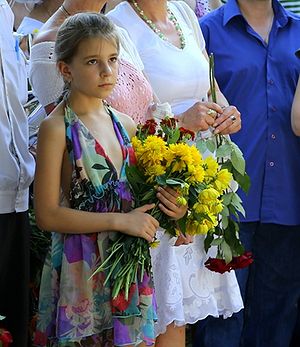
Today, on the first anniversary of the tragic events, not only are the townspeople commemorating the victims, but they also fear new bombardments. Even now, at the time of the declared truce, people are killed on the outskirts of the city nearly every day. For those who came to remember the victims this day was not only a day of mourning for the killed civilians, but also a day of a joint prayer for the cessation of war.
